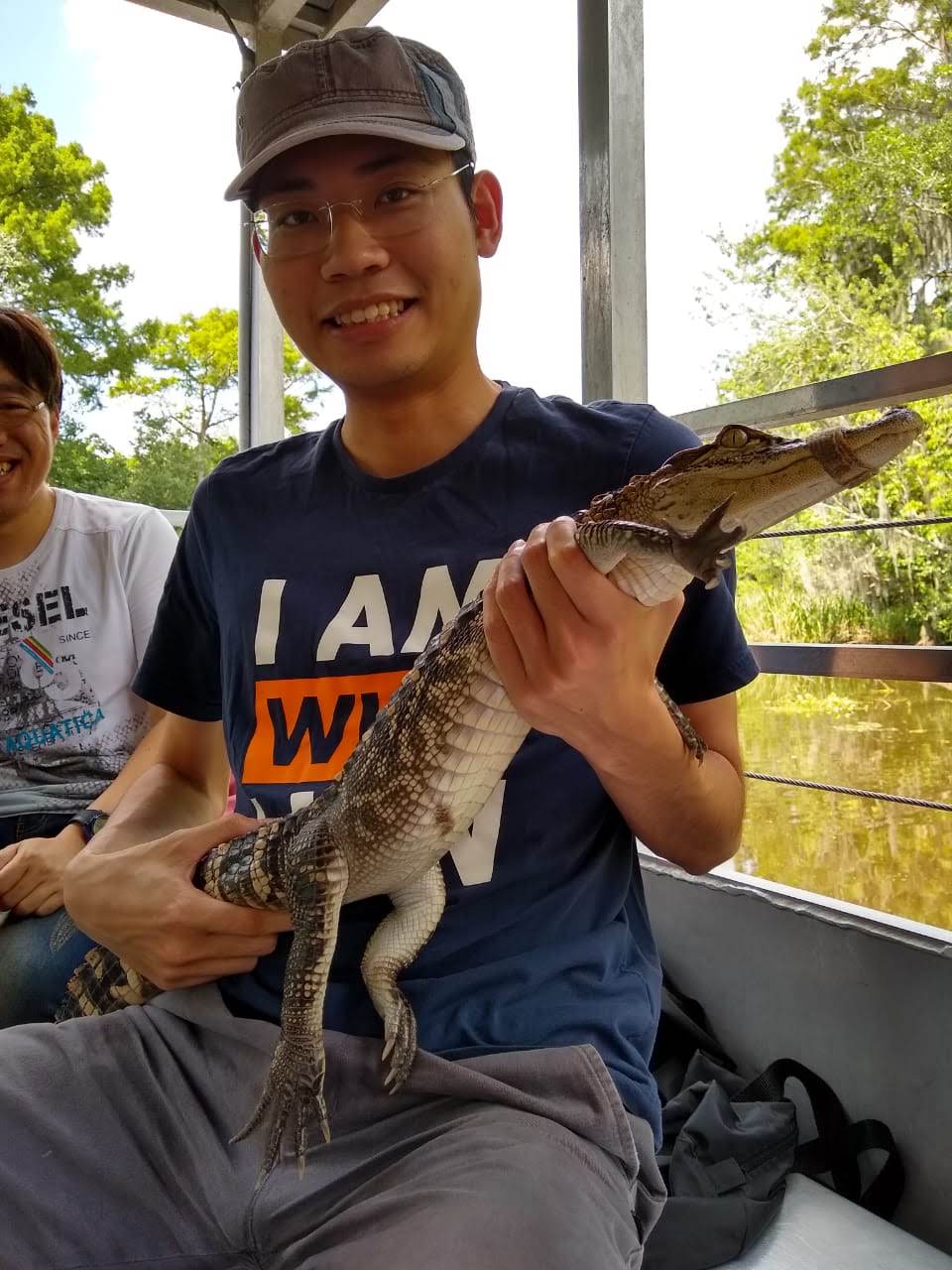|
I am a research scientist at Salesforce AI Research. I earned my Ph.D. degree at the University of Illinois, Chicago, where I was fortunate to be advised by Bing Liu (we continue to work closely). Prior to that, I received my M.Sc. in Computer Science from the University of Texas, Dallas, under the guidance of Vincent Ng. During the summers, I was a research intern at Google DeepMind, Meta AI, Amazon Science and Tencent AI Lab. Email / Google Scholar / Github / Twitter / LinkedIn / Blog / Resume If you'd like to chat with me about research or anything, please feel free to reach out via email or schedule a chat here. I'd be happy to connect! |

|
📰 News
📚 Selected Publications & Preprints
Full list on Google Scholar. (* indicates equal contribution)
Agents and Reasoning
MAS-Zero: Designing Multi-Agent Systems with Zero Supervision
Zixuan Ke, Austin Xu, Yifei Ming, Xuan-Phi Nguyen, Caiming Xiong, Shafiq Joty
SEA@NeurIPS, 2025🏅 Oral
Project Page |
arXiv |
code
A Survey of Frontiers in LLM Reasoning: Inference Scaling, Learning to Reason, and Agentic Systems
Zixuan Ke, Fangkai Jiao, Yifei Ming, Xuan-Phi Nguyen, Austin Xu, Do Xuan Long, Minzhi Li, Chengwei Qin, Peifeng Wang, Silvio Savarese, Caiming Xiong, Shafiq Joty
NeurIPS Tutorial, 2025 | TMLR, 2025 🏅 Survey Certification Award
Project Page |
arXiv
Large Language Models
NAACL2025 Tutorial: Adaptation of Large Language Models
Zixuan Ke, Yifei Ming, Shafiq Joty
NAACL, 2025
Tutorial Page |
Recording |
Slides |
Proposal
Demystifying Domain-adaptive Post-training for Financial LLMs
Zixuan Ke, Yifei Ming, Xuan-Phi Nguyen, Caiming Xiong, Shafiq Joty
EMNLP, 2025 🏅 Oral (ARR Best Paper Nomination)
Project Page |
arXiv |
Code |
Model (Llama-Fin-8b) |
Training data (FinETrain) |
Benchmark (FinEval)
Bridging the Preference Gap between Retrievers and LLMs
Zixuan Ke, Weize Kong, Cheng Li, Mingyang Zhang, Qiaozhu Mei, Michael Bendersky
ACL, 2024
arXiv |
talk |
poster
Continual Pre-training of Language Models
Zixuan Ke*, Yijia Shao*, Haowei Lin*, Tatsuya Konishi, Gyuhak Kim, Bing Liu
ICLR, 2023
arXiv |
poster |
model |
code
Adapting a Language Model While Preserving its General Knowledge
Zixuan Ke, Yijia Shao, Haowei Lin, Hu Xu, Lei Shu, Bing Liu
EMNLP, 2022a
arXiv |
poster |
code
Continual Training of Language Models for Few-Shot Learning
Zixuan Ke, Haowei Lin, Yijia Shao, Hu Xu, Lei Shu, Bing Liu
EMNLP, 2022b
arXiv |
poster |
model |
code
Continual Learning
Sub-network Discovery and Soft-masking for Continual Learning of Mixed Tasks
Zixuan Ke, Bing Liu, Wenhan Xiong, Asli Celikyilmaz, Haoran Li
EMNLP, 2023
arXiv |
code
Continual Learning of Natural Language Processing Tasks: A Survey
Zixuan Ke, Bing Liu
arXiv, 2023
arXiv
A Theoretical Study on Solving Continual Learning
Gyuhak Kim, Changnan Xiao, Zixuan Ke, Bing Liu
NeurIPS, 2022
arXiv
Achieving Forgetting Prevention and Knowledge Transfer in Continual Learning
Zixuan Ke, Bing Liu, Nianzu Ma, Hu Xu, Lei Shu
NeurIPS, 2021
arXiv |
talk |
poster |
code
Continual Learning of A Mixed Sequence of Similar and Dissimilar Tasks
Zixuan Ke, Bing Liu, Xingchang Huang
NeurIPS, 2020
arXiv |
talk |
poster |
code
Argument Mining
Automated Essay Scoring: A Survey of the State of the Art
Zixuan Ke, Vincent Ng
IJCAI, 2019
Learning to Give Feedback: Modeling Attributes Affecting Argument Persuasiveness in Student Essays
Zixuan Ke, Winston Carlile, Nishant Gurrapadi, Vincent Ng
IJCAI, 2018
dataset-persuasive |
dataset-thesis-strength
🎤 Recent Talks & Classes
Adaptation of Large Language Models
Tutorial at NAACL 2025, New Mexico, May 3, 2025
Recording | Webpage
Domain-specific Post-training
Talk at VISA Research, Remote, March 4, 2025
Slides
Adapting Large Language Models for the Dynamic World
Talks at:
– Snowflake, Remote, Feb 1, 2024
– Salesforce AI Research, Remote, Jan 11, 2024
– Google DeepMind, Remote, Nov 9, 2023
Slides
Continual Pre-training of Language Models
Talk at ContinualAI, Remote, April 27, 2023
Slides |
Video
Continual Learning in NLP
Tutorial at DEIM 2023, Remote, March 6, 2023
Slides
Lifelong and Continual Learning
Short PhD Course (8 hours), Aalborg University, June 14–16, 2022
Part 1 |
Part 2
Conference Talks
See the Selected Publications section or more on Underline.
🔬 Research Services
Area Chair/Action Editor (2024-):
ARR
Program Committee/Reviewer (2021-):
ICLR, NeurIPS, ICML, ACL, EMNLP, NAACL, IJCAI, ARR, COLING, Collas, NLPCC
Journal Reviewer (2021-):
TPAMI, TKDE, Neural Networks, Neurocomputing, Artificial Intelligence, TALLIP
🤝 Collaborators
I have had the privilege of working with and learning from great mentors and mentees, including:
Mentors:
Bing Liu, distinguished professor at UIC
Vincent Ng, professor at UTD
Hu Xu, research scientist at Facebook AI Research (FAIR)
Lei Shu, research scientist at Google Research
Mentees:
(They're making great achievements and I couldn't be more thrilled and proud of them)
Yijia Shao, BS at Peking University → PhD at Stanford
Haowei Lin, BS → PhD at Peking University